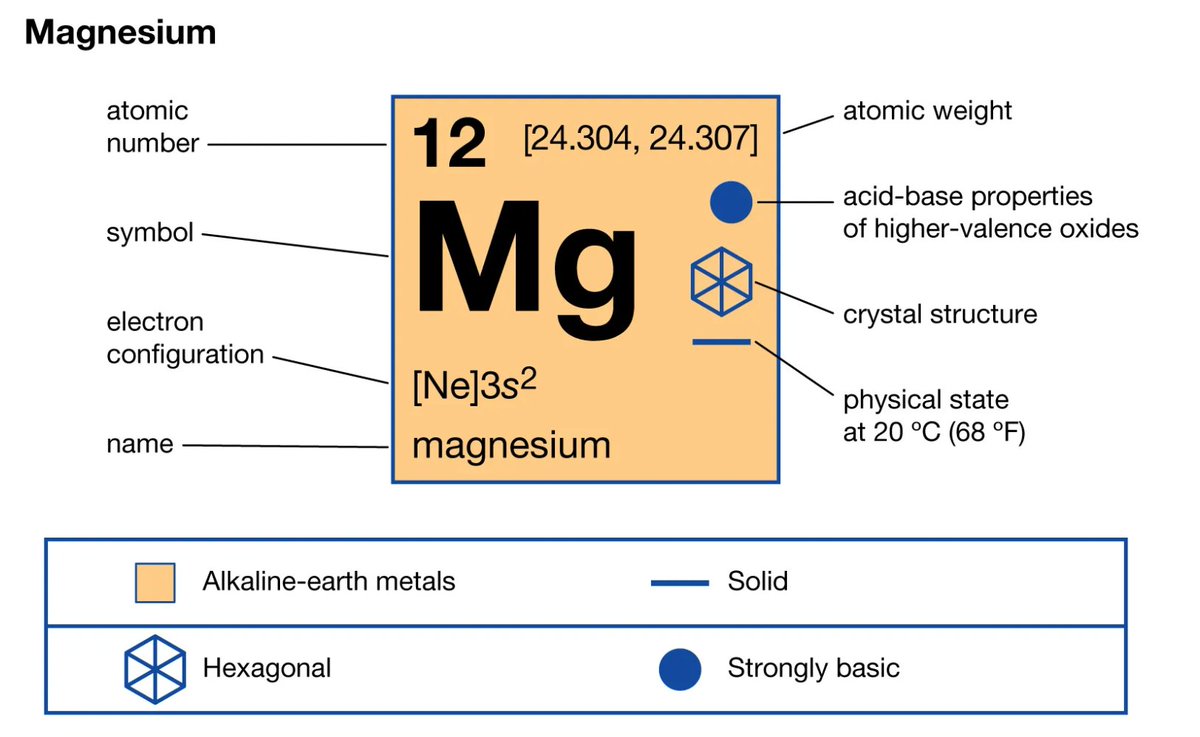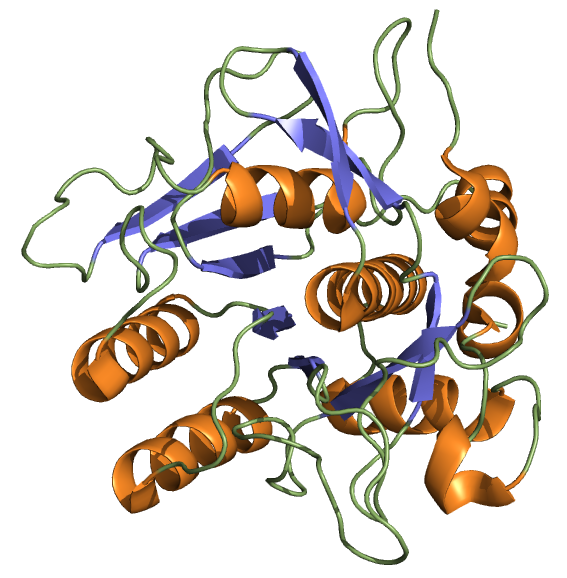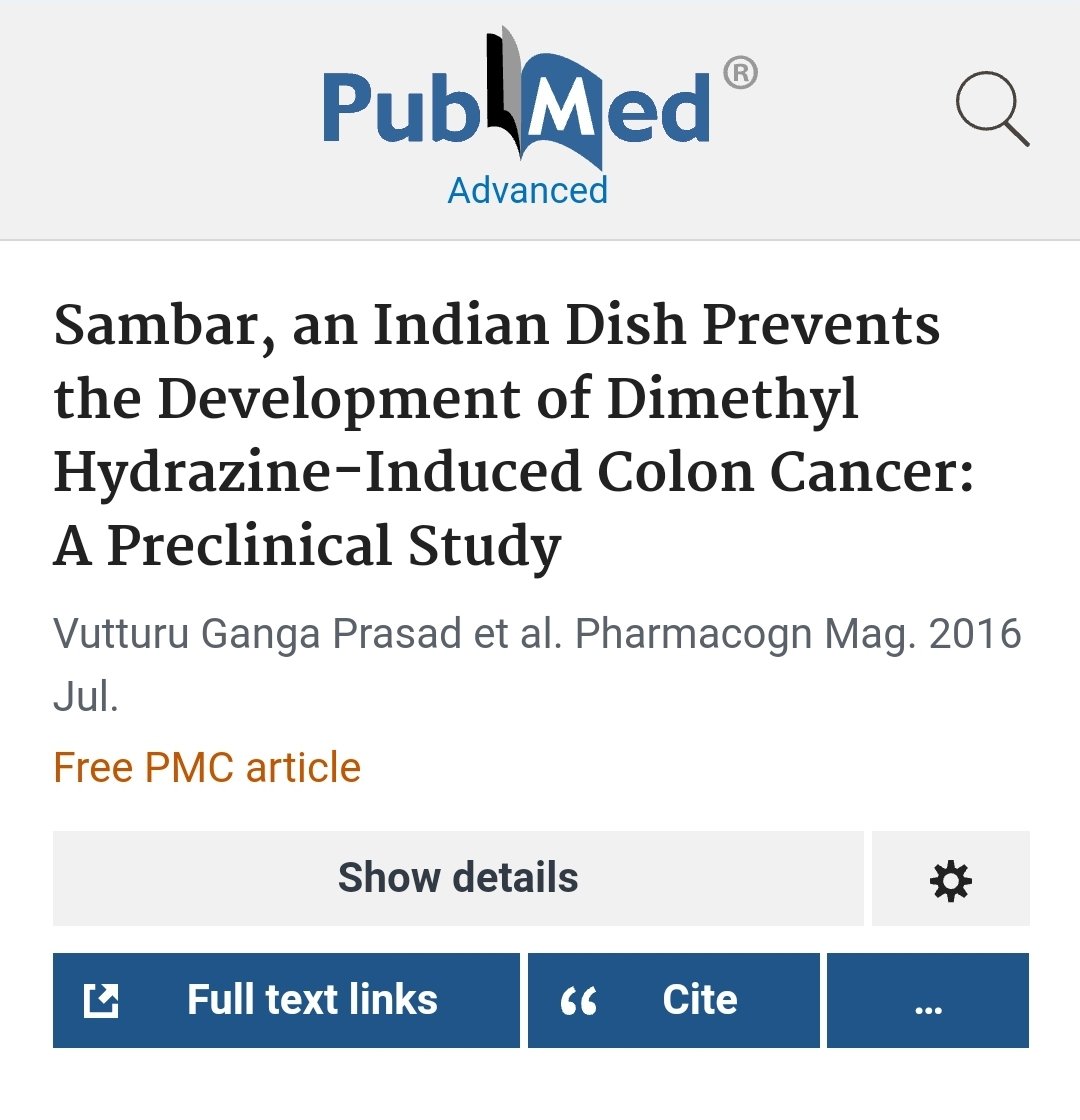
Magnesium is the second most common positively charged intracellular ion in the human body, after potassium. It is the fourth most common mineral in the human body.
Magnesium is involved as a cofactor in more than 300 enzyme systems, and it is believed that over 3000 human proteins bind to Mg+2. This vital mineral is involved in such fundamental processes as energy production and DNA synthesis. 
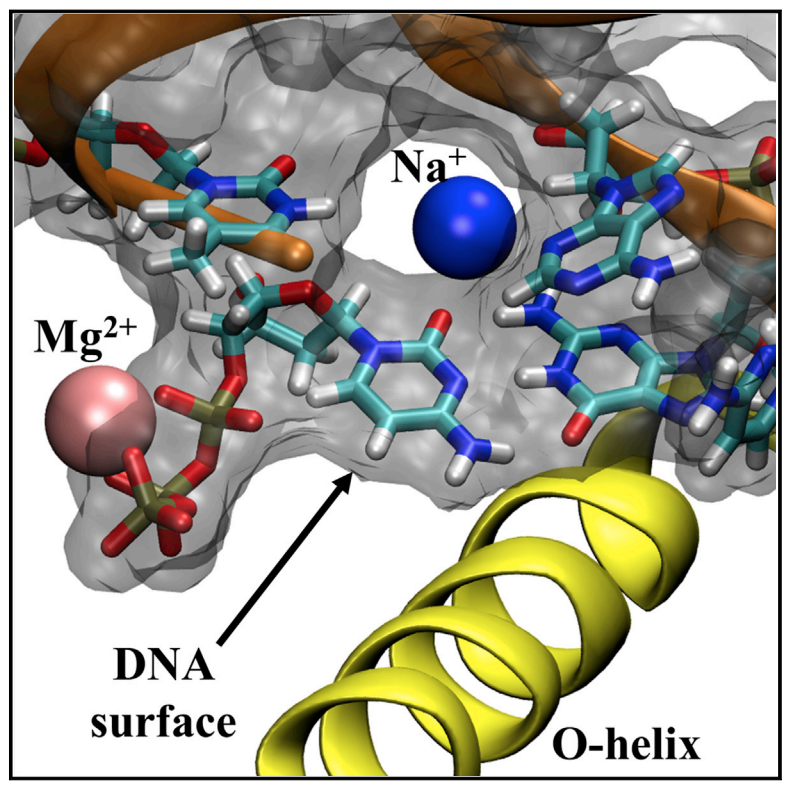
High concentrations of intracellular Mg are found in the mitochondria, where it plays a critical role in helping make adenosine triphosphate (ATP) from adenosine diphosphate (ADP) and inorganic phosphate.
hindawi.com/journals/scien…
hindawi.com/journals/scien…
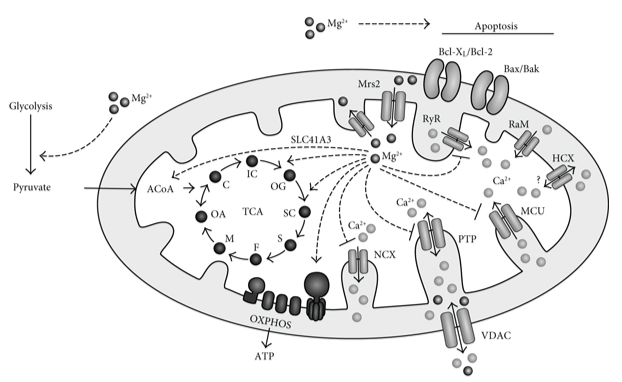
ATP metabolism, muscle contraction and relaxation, the release of neurotransmitters, normal neurological functions, regulation of vascular tone, heart rhythm, platelet-activated thrombosis and bone formation are all magnesium-dependent. 
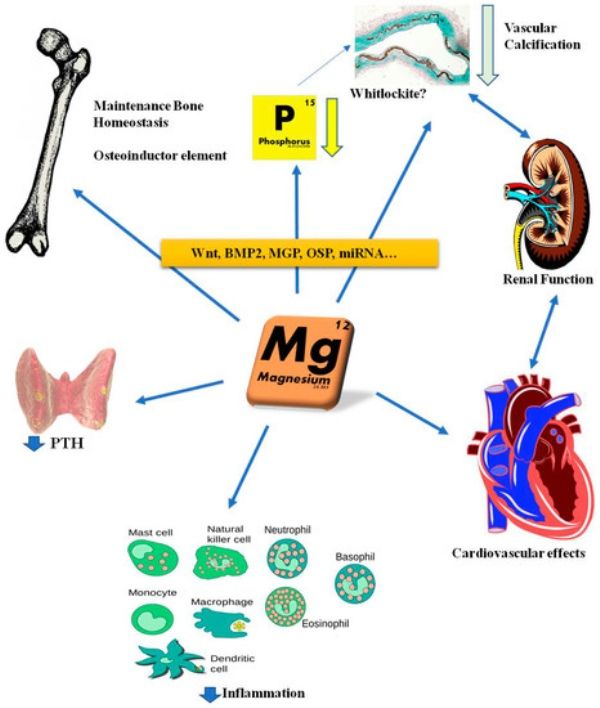
It probably wouldn’t come as a surprise that a mineral involved in over 300 enzyme systems and over 3000 human proteins would be involved in our immune system.
Plus, all of the enzymes that metabolise vitamin D seem to require magnesium, and we know how important vitamin D is with regards to our immunity.
pubmed.ncbi.nlm.nih.gov/29480918/
pubmed.ncbi.nlm.nih.gov/29480918/
With regards to cellular protection and immunity, here are some of the things Mg does:
- Acts as a cofactor of enzymes of nucleic acid metabolism and stabilises structure of nucleic acids.
- Help protect DNA against oxidative damage.
- Acts as a cofactor of enzymes of nucleic acid metabolism and stabilises structure of nucleic acids.
- Help protect DNA against oxidative damage.
- High concentrations can reduce superoxide anion production - a ROS.
- Has a role in antigen binding to macrophages.
- Regulates leukocyte activation.
- Involved in the regulation of cell death.
- Acts as a cofactor in the formation of antibodies.
- Has a role in antigen binding to macrophages.
- Regulates leukocyte activation.
- Involved in the regulation of cell death.
- Acts as a cofactor in the formation of antibodies.
Unfortunately many of us may be deficient in magnesium.
It is estimated that between 56 and 68% of Americans do not obtain enough magnesium in their diet on a daily basis.
pubmed.ncbi.nlm.nih.gov/28140318/
It is estimated that between 56 and 68% of Americans do not obtain enough magnesium in their diet on a daily basis.
pubmed.ncbi.nlm.nih.gov/28140318/
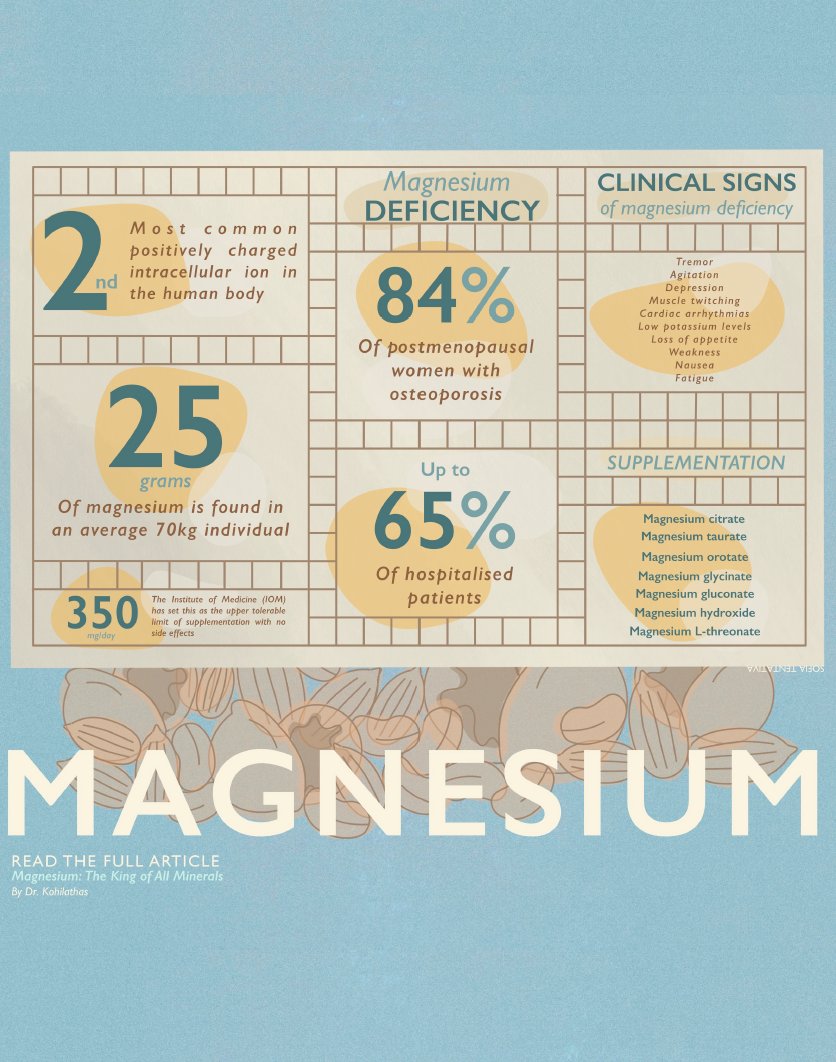
Other research suggests that around 10-30% of a given population has subclinical magnesium deficiency based on serum Mg levels <0.80mm/L.
ncbi.nlm.nih.gov/pmc/articles/P…
ncbi.nlm.nih.gov/pmc/articles/P…
Magnesium deficiency has been found in 84% of postmenopausal women with osteoporosis. Magnesium deficiency is also commonly found in diabetics and the elderly.
The prevalence of magnesium deficiency ranges from 9% to 65% in hospitalised patients.
pubmed.ncbi.nlm.nih.gov/16808892/
The prevalence of magnesium deficiency ranges from 9% to 65% in hospitalised patients.
pubmed.ncbi.nlm.nih.gov/16808892/
Chronic magnesium deficiencies over time have been linked to atherosclerosis, heart attacks, high blood pressure, malignant tumours, kidney stones, and alterations in blood cholesterol levels.
There are numerous reasons why many of us are magnesium deficient.
The food we eat now has less magnesium than the food our ancestors ate. This is due to monocropping, pesticides, soil mineral depletion, certain cooking methods, and ultra-processed food manufacturing .
The food we eat now has less magnesium than the food our ancestors ate. This is due to monocropping, pesticides, soil mineral depletion, certain cooking methods, and ultra-processed food manufacturing .

Smoking, gastrointestinal absorption disorders, calcium supplementation, and too much or too little vitamin D can all lower our magnesium levels. 

And finally, insulin resistance, drinking too much alcohol, diabetes, and some kidney diseases can all cause more magnesium to leave the body and less magnesium to be stored.
diabetesjournals.org/diabetes/artic…
diabetesjournals.org/diabetes/artic…
It is also important to know that stress, whether physical or emotional, increases the need for magnesium.
It can be argued that our stressful lives deplete magnesium stores, and this, along with a reduced input, may potentiate the risks of unabated stress.
It can be argued that our stressful lives deplete magnesium stores, and this, along with a reduced input, may potentiate the risks of unabated stress.
With regards to our immune system, magnesium deficiency can result in:
- Decreased numbers of monocytes.
- Decreased NK-cell activity.
- Increased oxidative stress after exercise.
- Increased levels of cytokines such as IL-6.
- Increased inflammation.
- Decreased T-cell ratios.
- Decreased numbers of monocytes.
- Decreased NK-cell activity.
- Increased oxidative stress after exercise.
- Increased levels of cytokines such as IL-6.
- Increased inflammation.
- Decreased T-cell ratios.
Recent research have noted that those with mutations in magnesium transport systems found in certain genetic conditions are likely to suffer from severe and chronic EBV infection and cancer formation, suggesting an important role for magnesium as a second messenger in immunity.
With regards to COVID-19, one review noted that adequate magnesium levels were associated with lower mortality rates and less severe symptoms.
frontiersin.org/articles/10.33…
frontiersin.org/articles/10.33…
And this was reflected by a cross-sectional study that noted,
“We found that higher intake of dietary magnesium was inversely associated with COVID-19 severity and symptoms.”
frontiersin.org/articles/10.33…
“We found that higher intake of dietary magnesium was inversely associated with COVID-19 severity and symptoms.”
frontiersin.org/articles/10.33…
Other than helping with immunity, here are some other things magnesium supplementation may help with:
- Improve asthma outcomes.
- Increase bone mineral density.
- Possibly increases cognitive abilities.
- May reduce symptoms of depression.
- May help with sleep.
- Improve asthma outcomes.
- Increase bone mineral density.
- Possibly increases cognitive abilities.
- May reduce symptoms of depression.
- May help with sleep.
- Reduces the frequency of pregnancy-related
complications.
- Possibly improves migraine headaches.
- May be beneficial in diabetics.
- May reduce the risk of cancer.
- May improve cardiovascular health.
- May improve eye health.
complications.
- Possibly improves migraine headaches.
- May be beneficial in diabetics.
- May reduce the risk of cancer.
- May improve cardiovascular health.
- May improve eye health.
If you’ve ever shopped online or in health stores you are aware that there are many forms of magnesium salts available for purchase.
Let’s go through some common forms.
Let’s go through some common forms.
Mag glycinate has good bioavailability with less GI side-effects.
Along with mag taurinate, there is some evidence that mag glycinate may help with rapid recovery from major depression in less than 7 days.
ncbi.nlm.nih.gov/books/NBK50726…
Along with mag taurinate, there is some evidence that mag glycinate may help with rapid recovery from major depression in less than 7 days.
ncbi.nlm.nih.gov/books/NBK50726…
Magnesium L-threonate (MgT) can effectively enhance CSF magnesium concentrations via oral intake.
MgT significantly increased red-blood-cell concentration, improved cognitive abilities, and reversed clinical measures of brain ageing by 9.4 years.
ncbi.nlm.nih.gov/pmc/articles/P…
MgT significantly increased red-blood-cell concentration, improved cognitive abilities, and reversed clinical measures of brain ageing by 9.4 years.
ncbi.nlm.nih.gov/pmc/articles/P…
Magnesium taurate. One study investigated the antihypertensive and cardioprotective effects of magnesium on lab induced hypertensive rats. The study noted that
“The oral administrations of magnesium taurate significantly restored the blood pressure, myocardial antioxidants and
“The oral administrations of magnesium taurate significantly restored the blood pressure, myocardial antioxidants and
malondialdehyde level as compared to toxic control group.... The results suggest that magnesium taurate has prominent antihypertensive and cardioprotective activity via its potent antioxidant activity and can be used as a nutrition supplement to improve cardiovascular health.’’
Another study showed that magnesium taurate delaying the onset and progression of cataract in rats by restoring the lens calcium ion and magnesium ion ratio and lens redox status.
sciencedirect.com/science/articl…
sciencedirect.com/science/articl…
The bioavailability of magnesium citrate is better than magnesium oxide. It is absorbed well in the body. It can be used as an osmotic laxative by drawing large amounts of fluid into the colon. For this reason, it is also used in bowel preparations before colonoscopies.
Magnesium orotate is a magnesium salt of orotic acid and is poorly soluble in water (and possibly not very bioavailable).
Orotic acid acts a transporter that carries magnesium into cells. Orotic acid also possesses antioxidant properties as well.
Orotic acid acts a transporter that carries magnesium into cells. Orotic acid also possesses antioxidant properties as well.
Magnesium orotate might have a cardioprotective role.
A study of those with heart failure showed that giving 6,000 mg of magnesium orotate daily for one month, followed by 3,000 mg daily for 11 months reduced the risk of dying during the study by about 25%.
A study of those with heart failure showed that giving 6,000 mg of magnesium orotate daily for one month, followed by 3,000 mg daily for 11 months reduced the risk of dying during the study by about 25%.
On that note, I think it would be good to go over some of the cardiovascular protective abilities of magnesium.
Randomised controlled trials have shown that magnesium supplementation improves endothelial function and reduces blood pressure, arterial stiffness, fasting glucose and insulin resistance. All these factors have been shown to be associated with the formation of atherosclerosis. 
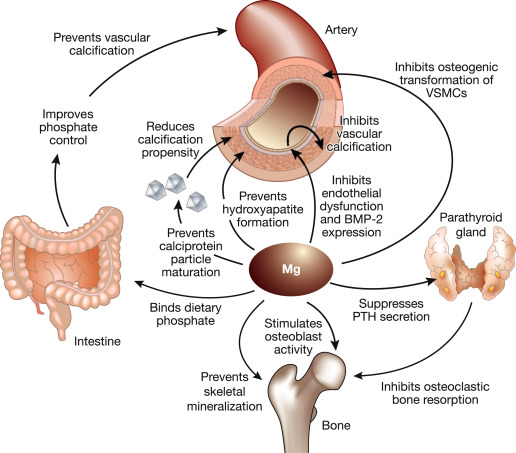
Magnesium supplementation may be important in heart failure too. In heart failure patients, as serum Mg2+ concentrations ≥1.05 mmol/L were associated with increased cardiovascular mortality.
Moderate and severe magnesium deficiency is also associated with arrhythmias. Magnesium ions are important in the formation of heart beats. 
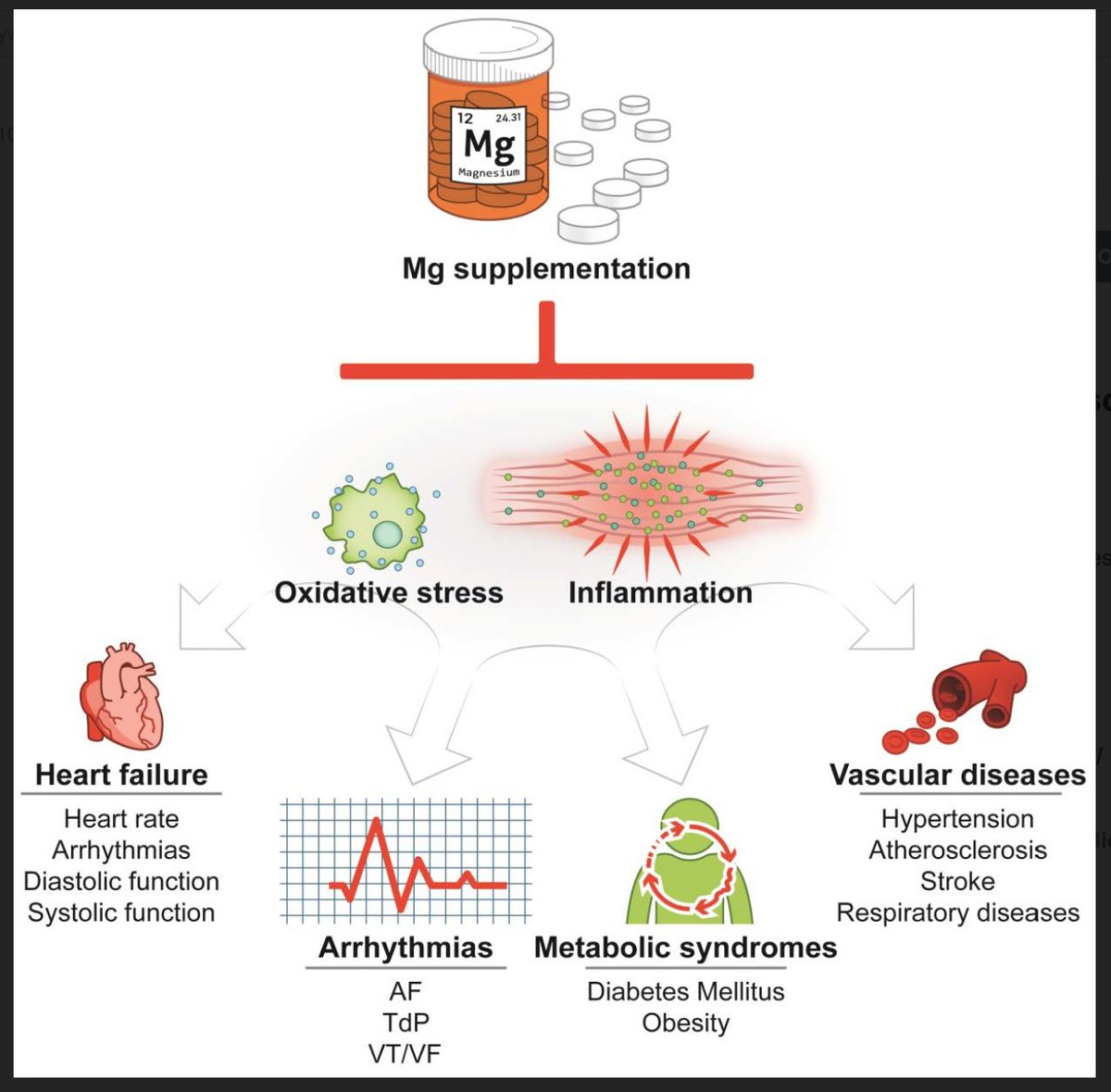
Mag is also known for its role in the electrical stability and energy balance of heart cells.
Low mag has been associated with atrial and ventricular arrhythmias and low serum magnesium could therefore also be a risk factor for sudden cardiac death.
ahajournals.org/doi/10.1161/JA…
Low mag has been associated with atrial and ventricular arrhythmias and low serum magnesium could therefore also be a risk factor for sudden cardiac death.
ahajournals.org/doi/10.1161/JA…
If you'd like to learn more about magnesium, grab my guide all about it. This thread only skims the surface of magnesium's capabilities.
drkohilathas.co.uk/magnesium
drkohilathas.co.uk/magnesium
Also realise that there are foods out there that help reduce the excretion of magnesium 👇🏾
https://twitter.com/drkohilathas/status/1629831812993150976?t=InqkjYIMmOdjhGXjsaupQQ&s=19
• • •
Missing some Tweet in this thread? You can try to
force a refresh

